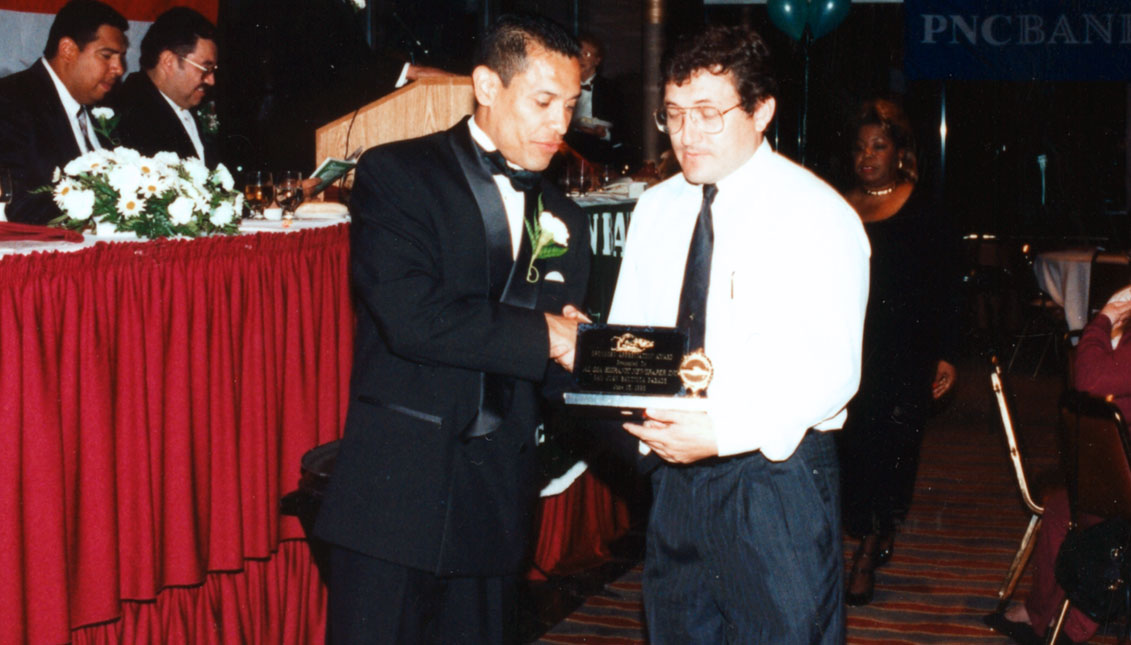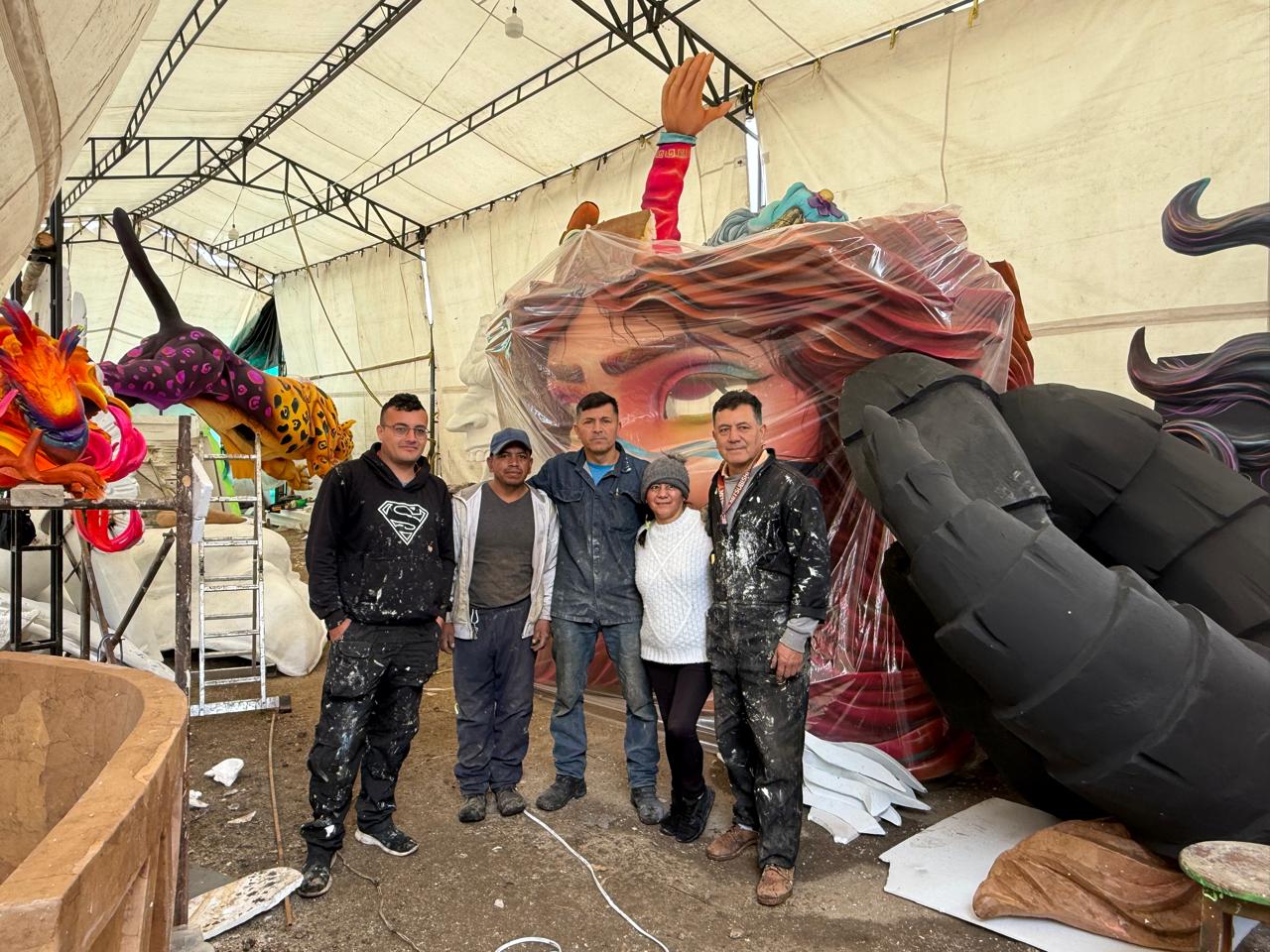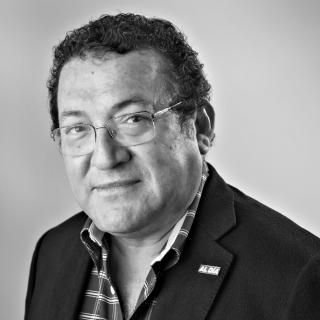
A Long and Winding Road
How the founder and editor of AL DÍA made a home in Philly.
How I ended up in Philadelphia is still sort of an enigma to me.
One that I am careful not to unravel, out of respect for a mystique that has been at the center of my life, made up, no different from all of yours, when you think about, of unexpected chains of events that in hindsight make all sense— but not until much later on, particularly now in my case, 30 years later, when I can turn my head over my shoulder and comfortably look back at the considerable stretch already traversed and take a moment to ponder.
But when first confronted by those events, coming at us as inevitable and calamitous, we might have suffered from panic, anxiety, depression, combined with a bit of sweating on our hands and tons of uncertainty in our head.
Philadelphia was at the time a remote city on the East Coast, two days away on a Greyhound bus ride from Iowa City, where I was a graduate student of Journalism until 1991, when I finally dropped out from a PhD Program I had been accepted to after finishing, at age 31, almost out of breath a race to graduation day in a Master of Arts program in the unconventional profession I had decided to pursue at age 16.
A book I bumped into, green and yellow covers, published in Spain, I remember, inspired me to follow a different path from my two older brothers, both successful and well paid engineers with solid jobs in a society that demanded professionals in the exact sciences (STEM, they call it today), not so much in dreamy subjects like “Journalism and Literature,” the exact title of the book I had come across during my gullible adolescence.
Bachelors of Arts in Journalism? It wasn’t what society was urgently requiring in its rapid road to progress.
I effectively remain unemployed almost two years after officially receiving my undergraduate diploma, and the experience was no different when I got my Master’s degree from the University of Iowa, in Iowa City.
I skipped the commencement ceremony in the University of Iowa’s big auditorium (I couldn’t honestly stand picturing myself with that cap and that black robe) and it was my brother Raúl (he took it that seriously) the one who wore a tie to the graduation ceremony for my Bachelor of Arts in “Mass Communication and Journalism,” in Bogotá, Colombia, almost 10 years earlier. Jeans and a sport jacket was my sober attire to quietly protest the excess of the academic ritual I have never felt part of.
The signed diplomas, memorable pieces of very expensive paper I received —by mail in the Iowa experience— I quickly rolled up and threw in the trunk of useless things we carry around all our lives.
They are now in display in my Philadelphia office, and I have finally found a good use for them. Whenever an attentive apprentice come to our shop, I turn to them to teach them the first lesson in the profession:
“Look, none of these two pieces of paper (undergraduate and graduate diplomas) has ever landed me a job anywhere in my entire life.”
“Value your experience here.”
“Yes, it has to be hands-on, making mistakes, your hands sore after your long effort, sometimes even bleeding from the nose when you hit the wall.”
“That is how you really learn,” I always say with emphasis to the surprised apprentices at the AL DÍA shop.
After the overestimated academia is done, and the student debt is hanging over your neck, you quickly become a “disscepolo della sperientia” (disciple of experience), as Leonardo da Vinci wrote on the famous “Self-Portrait.”
I only remember two books I read with enjoyment, out of the 150 or so assigned for hasty reading and review in the seminars, advanced courses, and classes of all sorts needed to complete the “credits” for graduation.
My first winter of being unemployed in Philadelphia, with my Master of Arts Diploma carefully stored away in my Iowa suitcase, must have been bitter cold. Colder than those three winters in the windy Midwest I had just survived.
I don’t remember the details, but the feelings are seared under the skin and I can still evoke them every time I think of that demanding period of my life.
I was rejected over and over again while looking for a job, any job, but I remember three instances in particular:
One at the “Philadelphia Daily News,” one at “La Actualidad,” the Spanish-language newspaper from the neighborhood I lived in, in North Philly, and one more at the Miami Herald’s Spanish-language daily, “El Nuevo Herald,” in corporate downtown Miami.
Three applications I enthusiastically submitted to potential employers highlighting my talents, validated by my academic credentials, which for a moment gave me the illusion I could finally start earning a steady salary as a new professional to support my young family of three.
But I was literally the proverbial “round peg that couldn’t fit the square hole.”
“You are good for the Philadelphia Daily News,” pronounced the owner of the Spanish-language newspaper in North Philadelphia, Mr. Candelario Lamboy, who I went to meet with after being indirectly turned down by the Daily News, where a friend of mine, Alba Martinez, then a columnist of the paper, had helped me get a job interview with an editorial page editor.
I was made to feel underqualified for the job I had applied for in downtown Philadelphia, in the White Tower on Broad Street where the Inquirer emblematic building competed with the City Hall Tower for height and visibility— same as I was made to feel vastly overqualified for the job at the Hispanic newspaper of North Philadelphia, in the Olney section, where “La Actualidad” was based, in a house with 2 floors and a basement on the corner of 5th and Ruscomb streets.
The second interviewer asked for my “clips” in English. I have plenty in Spanish, I told him, not a single one in English yet. But I had many academic papers from my Master’s in that language, I quickly added. No reply.
RELATED CONTENT
The second interviewer, Mr. Lamboy, asked me if I could at least sell ads instead, which in his pragmatic opinion was more urgent for the publication than the superfluous activity of furnishing a good story from Hispanics in Philadelphia, or to do a better design of the black and white pages of his very modest publication, now folded.
Perhaps I could write stories and do better layouts so that somebody else could sell some ads for the better looking pages?, I dared to pitch to Mr. Lamboy.
His answer came back fast and flat. “No, son. You are good for the Daily News”.
Well, the Daily News was not impressed by my resume, either.
No experience in a newsroom in the U.S.?
It is like a medical doctor graduated in Dominican Republic, trying to get his license to practice in an American hospital, seeking impossible sympathy from the council of elders that administers that absurdly long exam to qualify you.
“No way, José.”
Funny enough, the treatment was not different when I interviewed for an entire day with the “Nuevo Herald” in Miami, with the mostly Cuban-American Staff, before facing legendary Miami Herald Publisher D.H. Lawrence at the end of the day.
“What book is now on your bedside table?,” Mr. Lawrence ceremously asked.
“Uh, Uh, Uh, Don Quixote… and the Bible (I just made it up. Who has time to read books when you are anxiously looking for a job?).
With his staff in “El Nuevo Herald” I thought I would have it easy, mainly because of the asset of commanding Spanish, written and verbally, as good, or better, as they did.
That would make me a no-brainer hire, I thought.
Not necessarily.
I wasn’t prepared at all for the unexpected question that floored me as much it pre-qualified me from the very beginning of the very long day of interviews and tests in Miami.
“Eres Cubano (Are your Cuban)?”
“Uh? No. Lo siento.”











LEAVE A COMMENT: